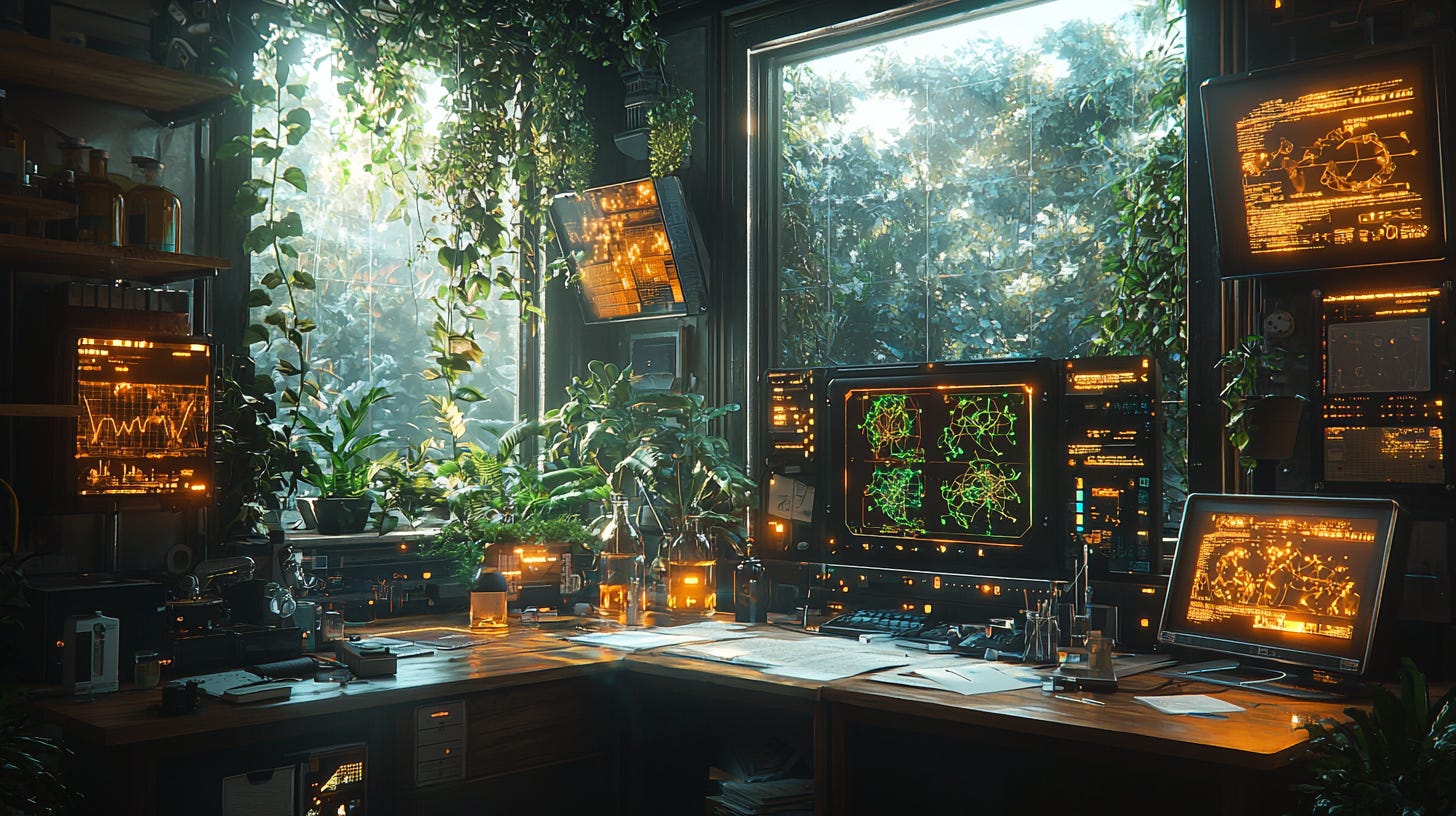Over the last century, our scientific theories have become remarkably accurate at predicting physical phenomena. Yet somehow, our deeper understanding of nature hasn't kept pace with our predictive power and we've reached a point where renowned physicists claim things like:
If you think you understand quantum mechanics, you don't understand quantum mechanics.
This “shut-up and calculate” mentality is treated as wisdom rather than an admission of failure and in my opinion violates the very foundation of scientific inquiry: our attempt to make sense of the world.
Our current theories excel at describing what happens, but fall short of explaining how and why. This suggests we've taken a wrong turn somewhere – perhaps it's time for a second Copernican revolution in how we think about reality. Perhaps it’s time to step outside the box.
That's what this Substack is about: approaching science with a hacker mindset. By drawing from our latest understanding across different fields – distributed systems, quantum mechanics, complexity theory, biology – we'll look at old problems in new ways. Taking lessons from engineering and applying them to fundamental physics, we'll explore the possibility that the universe itself might be best understood as a vast computational system.
We'll challenge assumptions, make unexpected connections, and most importantly, keep iterating on our understanding. Because that's what hackers do – we keep poking at the system until we figure out how it really works.
Join me in applying the hacker mindset to nature itself. Let's see what happens when we start treating the universe not as an inscrutable mystery but as code to be understood.


